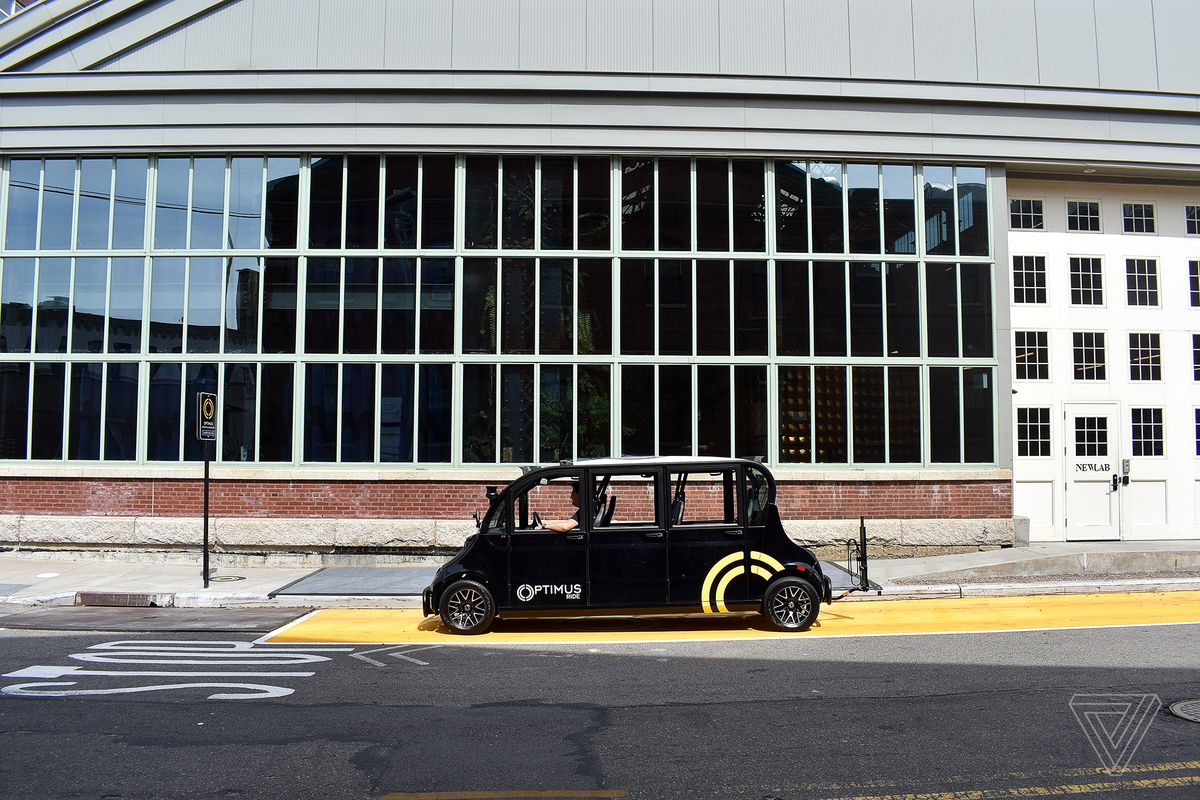Autonomous shuttle startup Optimus Ride and power sports vehicle manufacturer Polaris are teaming up to co-develop a new lineup of vehicles that will be low-speed, electric, and self-driving.
These low-speed vehicles (LSV) will be equipped with Optimus Ride’s full stack of sensors and software to enable “fully autonomous” driving without a safety driver behind the wheel — though the vehicles will also be monitored remotely by a team of engineers who can offer suggestions to the vehicle when things go wrong.
The vehicles, which can seat six, will be deployed as a last-mile transportation service in residential communities, corporate and academic campuses, and other “localized environments,” as both a fixed-route shuttle and a more dynamic, point-to-point ride-hailing service.
The LSVs will be manufactured under the brand name GEM, which stands for Global Electric Motorcars. Minnesota-based Polaris owns GEM, having acquired it in 2011, and it’s also an investor in Optimus Ride. The startup, which originally spun out of the Massachusetts Institute of Technology, currently uses GEM shuttles to test its autonomous technology in Brooklyn, Boston, California, Washington, DC, and Northern Virginia.
The vehicles, which will be rolled out in the first half of 2023, will be built without traditional controls like steering wheels and pedals, said Optimus Ride CEO Sean Harrington — although there will still be a way to move the vehicles manually. “The intention is we would have all six seats available for passengers,” Harrington told The Verge, “which means where you have currently have a driver’s seat, would be another passenger seat.”
Harrington said the decision to co-develop vehicles with Polaris was about making a better autonomous vehicle and also scaling up production to the point where the startup can start to deploy potentially thousands of vehicles.
“There’s just a lot more flexibility you have by custom-designing that vehicle with safety and performance built in from the ground up, as opposed to doing it sort of piecemeal,” he said.
:no_upscale()/cdn.vox-cdn.com/uploads/chorus_asset/file/18842576/ahawkins_190804_3589_0011.jpg)
A dozen or so low-speed autonomous shuttle services have sprung up around the country in recent years. Experts see them as a good entry point for consumers into AV technology, while regulators and city officials like keeping the vehicles contained in small, less populated areas. Optimus Ride claims that it has completed “over 75,000 rides” over the last two years.
Optimus Ride isn’t the only company staking out a position in the low-speed autonomous shuttle space. Other companies, like May Mobility, Voyage (now owned by Cruise), and Local Motors, have launched small pilot projects in cities over the years — though they have yet to scale up to a fully operational commercial service.
Other AV operators, like Waymo, Zoox, and Cruise, are also interested in launching fully autonomous ride-hail operations. Harrington says that Optimus Ride can still be competitive with those companies, despite operating vehicles with a top speed of only 25 mph.
“To be clear, this is not some sort of virtual rails AV system where you get in an environment and if there’s an obstacle, if there’s something in your way, that vehicle can’t proceed,” he said. “This is a vehicle that is out in a fairly complex environment.” These limitations, Harrington said, position Optimus Ride to provide an autonomous transportation service “today, as opposed to many, many years from now.”
This kind of small-scale business can also be extremely difficult to get right. Drive.ai nearly went out of business before it got bought by Apple. And Navya, a major autonomous shuttle manufacturer based in France, is pivoting away from the shuttle business in favor of licensing its software to third-party clients.
Polaris makes a variety of off-road vehicles, including the popular RZR lineup as well as garish three-wheelers like the Slingshot. It also owns Indian Motorcycle, which it acquired in 2011. The company recently announced a partnership with Zero Motorcycle to co-develop electric vehicles, including ATVs and snowmobiles.
“I think this is the smart place for all of us to be betting on,” said Keith Simon, vice president and general manager of Polaris Commercial, “which is why we’re doing this and why we’re so excited about it.”
